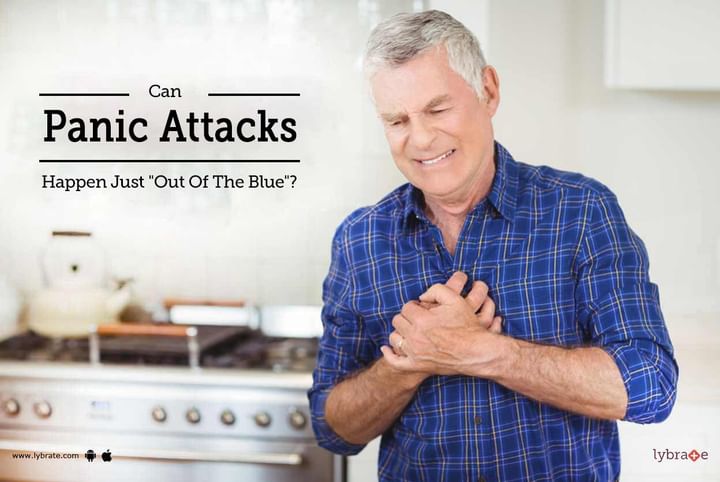Can Panic Attacks Happen Just "Out Of The Blue"?
Panic attacks can debilitate a person greatly. The panic or anxiety attacks can be extremely powerful and intense, can vary depending on the severity of the attack. Such people lose self-composure. In extreme cases, they cut themselves off from the outside world and recoil into their safe zone (Agoraphobia).
Panic attacks, should, by no means, be confused with depression. These attacks can be essentially divided into three phases; the start phase, it then reaches the pinnacle or the zenith, before sliding down (fades away). The duration of a panic attack can vary from long to very long periods. The whole experience can leave a person depressed, traumatized and drained out (physically and emotionally). A timely medical assistance can prove to be extremely fruitful.
Panic attacks- its causative, signs and symptoms
A panic attack, can, indeed, come out of the blue (unexpectedly). Extreme emotional turmoil or anxiety can trigger such an attack. An over-excited nervous system might turn out to be the wrecker in chief, throwing life in jeopardy. A person might be unprepared to deal with such a situation. Though extremely difficult, the best thing would be to try and relax. The attack is just an extreme state of mind, an abstract feeling that can never come true. It will pass off soon. Panicking will only pile onto your agony. Identifying the associated symptoms can prove to be effective.
Some of the important symptoms associated with pain attacks include:
- A feeling of breathlessness, suffocation and dizziness.
- The palms appear to be sweaty.
- A person may complain of uneasiness or chest pain.
- Increased palpitations are quite common during panic attacks.
- A person might experience severe chills or heat flushes.
- Twitching and trembling of the muscles are often observed during the attacks.
- An intense fear of death or going insane grips the person completely.
- Hands, legs, arms begin to tingle.
- During anxiety attacks, a person loses the reasoning ability.
Few short-term behavioural therapies can be of great help. Meditation, yoga and certain breathing practices can effectively ward off physical and mental fatigue. CBT or Cognitive Behavioural Therapy is a popular technique used to deal with panic attacks. This technique primarily emphasizes on the present conditions and factors resulting in panic and ways to minimize or completely eliminate the attacks.
Treatment-
Treatment can help reduce the intensity and frequency of your panic attacks and improve your function in daily life. The main treatment options are
- Psychotherapy
- Medications
One or both types of treatment can be recommended, depending on the severity of your panic disorder, your history, and whether you have access to therapists who have special training in panic disorders.
Medications can help reduce symptoms associated with panic attacks as well as depression if that's an issue for you. Various types of medication have been shown to be effective in managing symptoms of panic attacks, including:
- Selective serotonin reuptake inhibitors (SSRIs).
- Serotonin and norepinephrine reuptake inhibitors (SNRIs).
In case you have a concern or query you can always consult an expert & get answers to your questions!



+1.svg)
